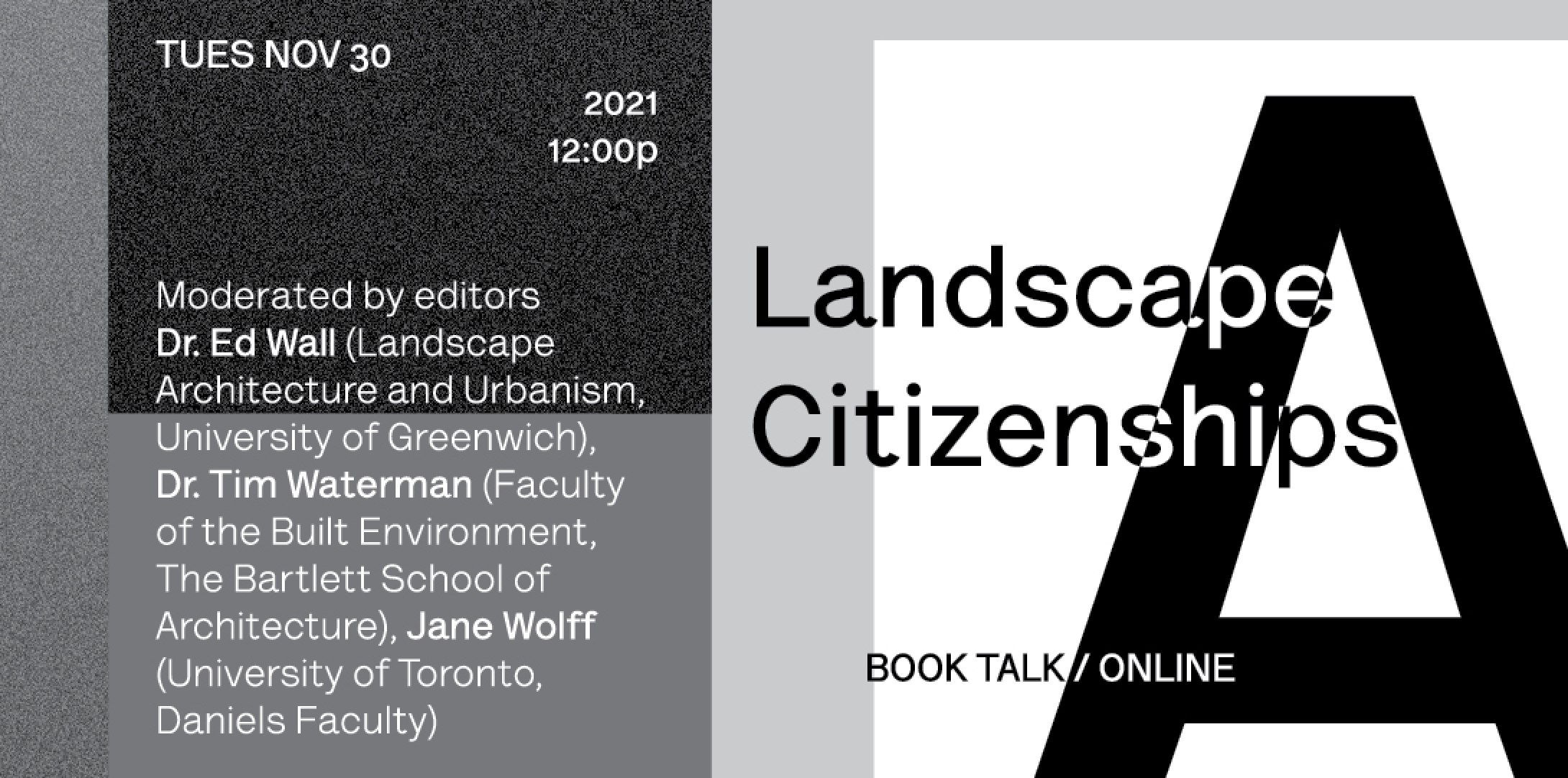
Book Talk: Landscape Citizenships
-
Moderated by editors:
Dr. Ed Wall (Landscape Architecture and Urbanism, University of Greenwich)
Dr. Tim Waterman (Faculty of the Built Environment, The Bartlett School of Architecture)
Jane Wolff (University of Toronto, Daniels Faculty)
Contributors:
Dr. Anna Antonova (Rachel Carson Center)
James Bird (University of Toronto, Daniels Faculty)
Danika Cooper (College of Environmental Design, University of California Berkeley)
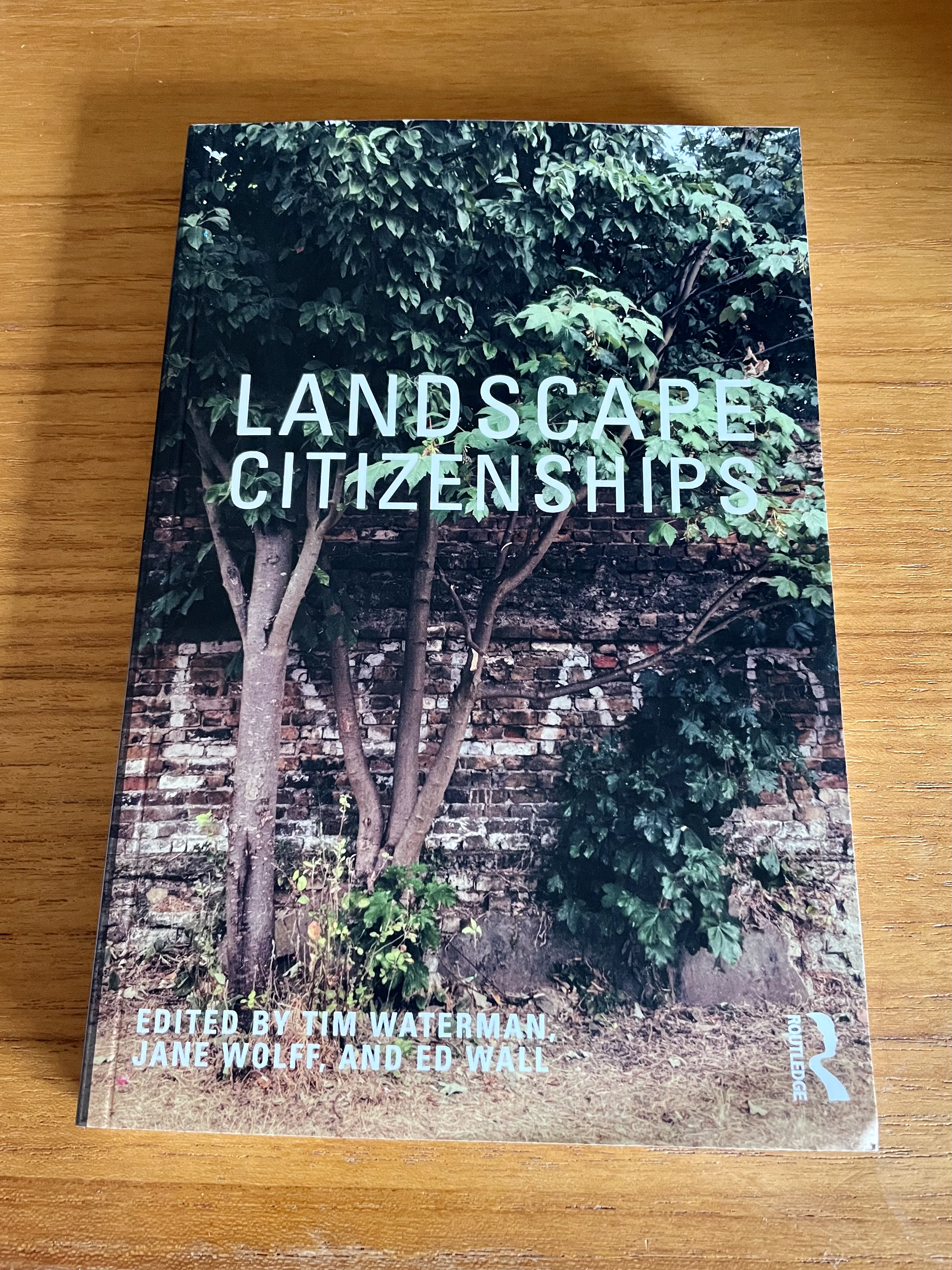
The book Landscape Citizenships, edited by Tim Waterman, Jane Wolff, and Ed Wall, challenges assumptions that landscape and citizenship belong in different intellectual arenas. Its fourteen essays question and counter narrowly defined relationships among people, places, and states; together, they examine and illuminate conditions where people belong to a place—and to other people connected to that place—in ways that transcend and refute structures of political belonging.
This book talk will be a conversation among Landscape Citizenships’ three editors and contributors Anna Antonova (Rachel Carson Center for Environment and Society), James Bird (Daniels Faculty), and Danika Cooper (University of Calfornia, Berkeley).

Tim Waterman is an associate professor of Landscape Theory at the Bartlett School of Architecture, UCL. His research addresses imaginaries: moral, political, social, ecological, radical, and utopian. This forms the basis for explorations of power and democracy and their shaping of public space and public life; taste, etiquette, belief and ritual; and foodways in community and civic life and landscape. He is the author of the forthcoming The Landscape of Utopia: Writings on Everyday Life, Taste, Democracy, and Design and editor of Landscape Citizenships with Ed Wall and Jane Wolff, Landscape and Agency: Critical Essays with Ed Wall, and the Routledge Handbook of Landscape and Food with Joshua Zeunert.
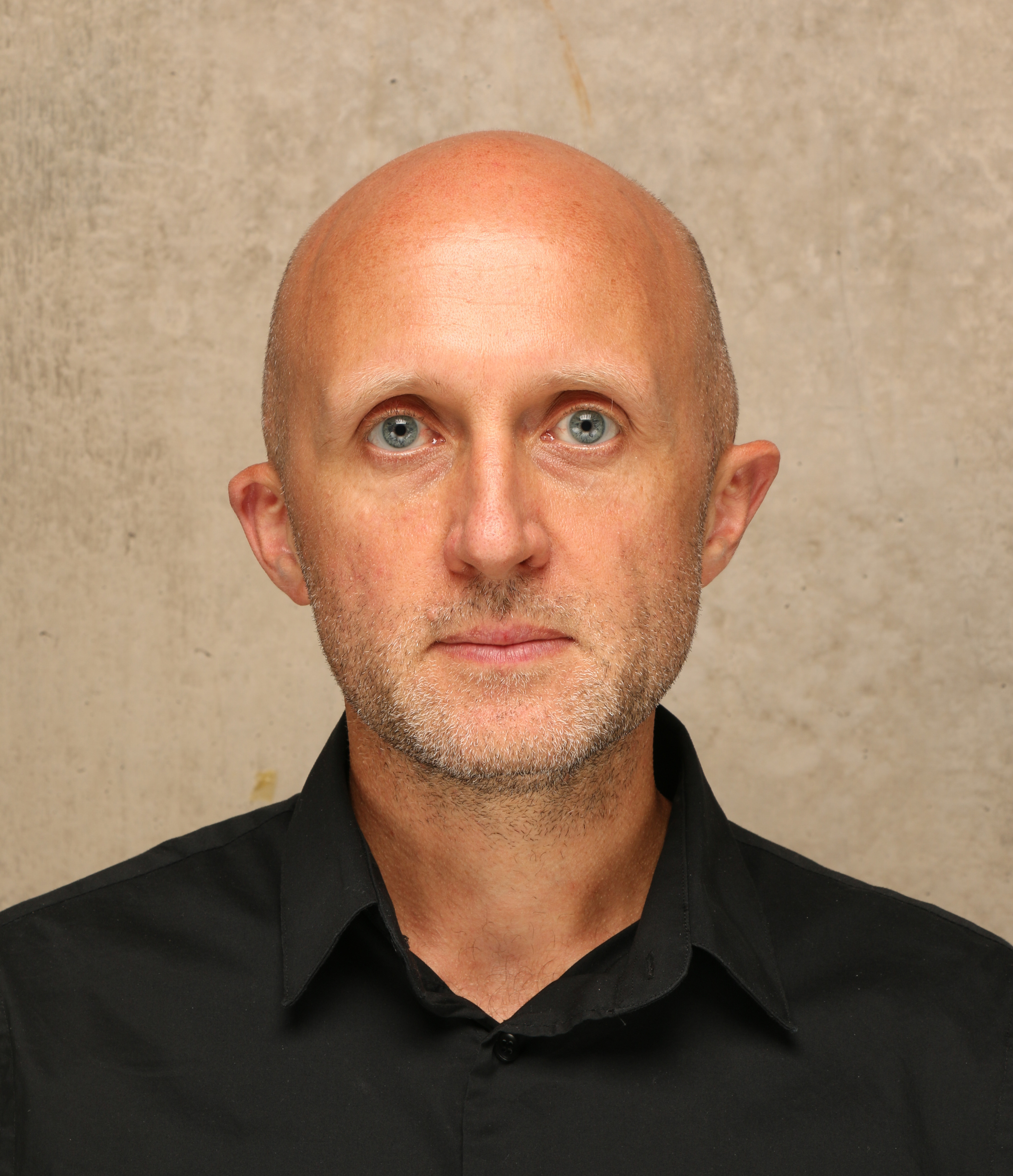
Ed Wall is the academic lead of Landscape Architecture and Urbanism and co-director of the Advanced Urban (AU) research group at the University of Greenwich, London. He is a visiting professor at Politecnico di Milano, and in 2017, was City of Vienna visiting professor: Urban culture, public space and the future–urban equity and the global agenda (SKuOR/TU Wien). His research and design work explores the intersection of practices of public space and processes of landscapes through concerns for spatial justice.
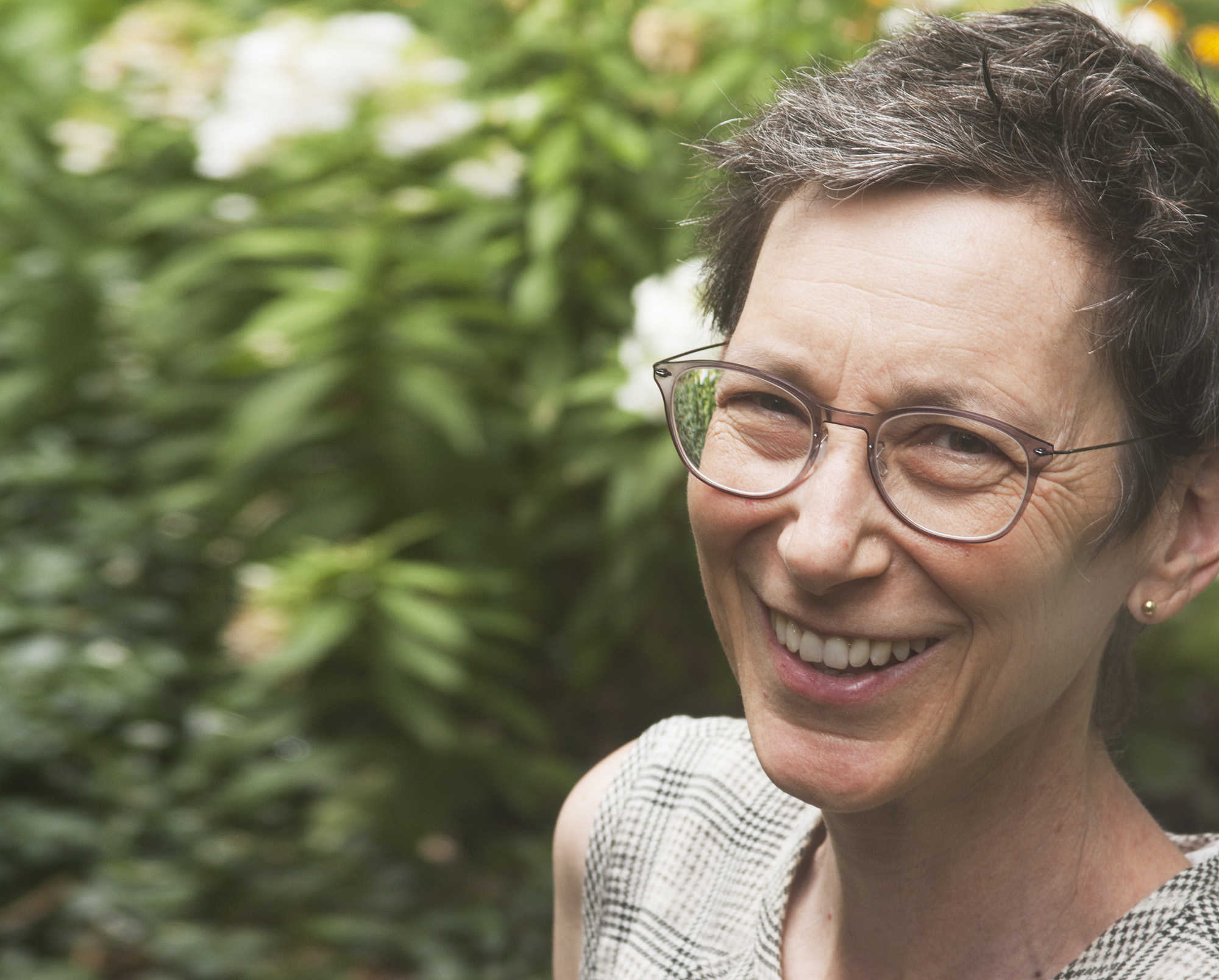
Jane Wolff is an associate professor at the University of Toronto John H. Daniels Faculty of Architecture, Landscape and Design. Informed by her education in landscape architecture and documentary filmmaking, her work uses drawing and writing to decipher and represent the web of relationships, processes, and stories that shape the everyday landscapes of the Anthropocene. Her activist scholarship projects, including Delta Primer, Gutter to Gulf, Bay Lexicon, and work in progress on Toronto, translate between rigorous, specialized information and ordinary language to make complex (and often contested) places legible to the wide range of audiences with a stake in the future.
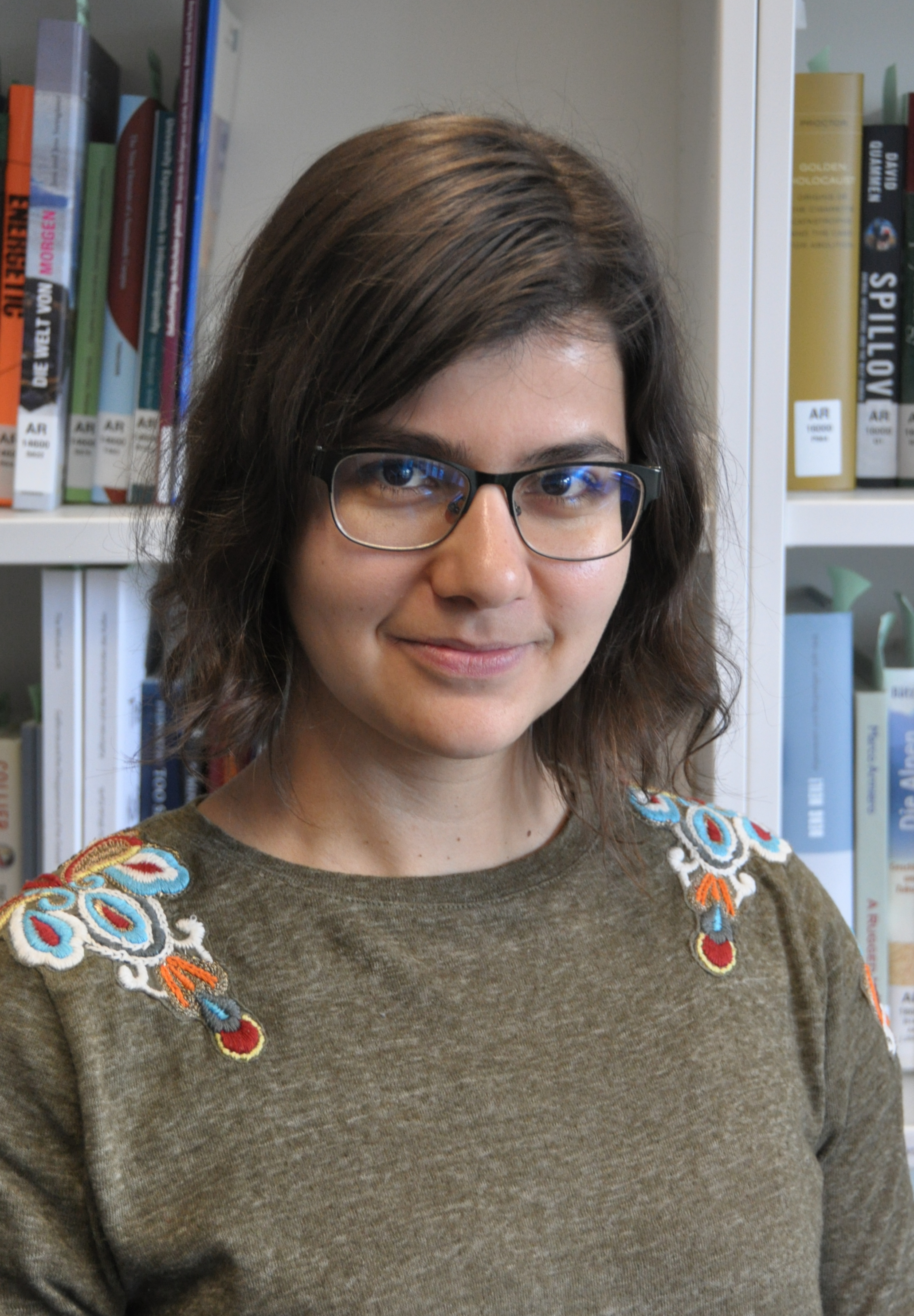
Anna S. Antonova works at the Rachel Carson Center for Environment and Society at LMU Munich as director of environmental humanities development. Her research brings together humanities and social science approaches to examine social, environmental, and policy change in the contemporary European context, particularly in coastal landscapes. She was previously a Marie Skłodowska-Curie research fellow as part of the ENHANCE network at the University of Leeds, where she wrote her dissertation on the conflicting narratives about environment and society emerging from the Yorkshire North Sea and Bulgarian Black Sea coastlines.

James K. Bird, M.Arch., MRAIC is a proud member of the Dënesųłiné Nation and affiliated with the Northwest Territories Métis Nation. He is also a residential survivor. He holds an Honors B.A. comprising two major fields of study: Indigenous Studies and Canadian History with a minor in Renaissance Culture. Currently completing a master’s degree in architecture at the University of Toronto. His current work examines the intersection between Indigenous languages and shape forming – using parametrics and algorithms. He is a Member of The Royal Architectural Institute of Canada’s Indigenous Task Force on Architecture. James was proud to be part of the Canadian team that won the 2018 Venice Architectural Biennale – a team headed by world-renowned Indigenous Architect Douglas Cardinal and 18 other Indigenous architects.
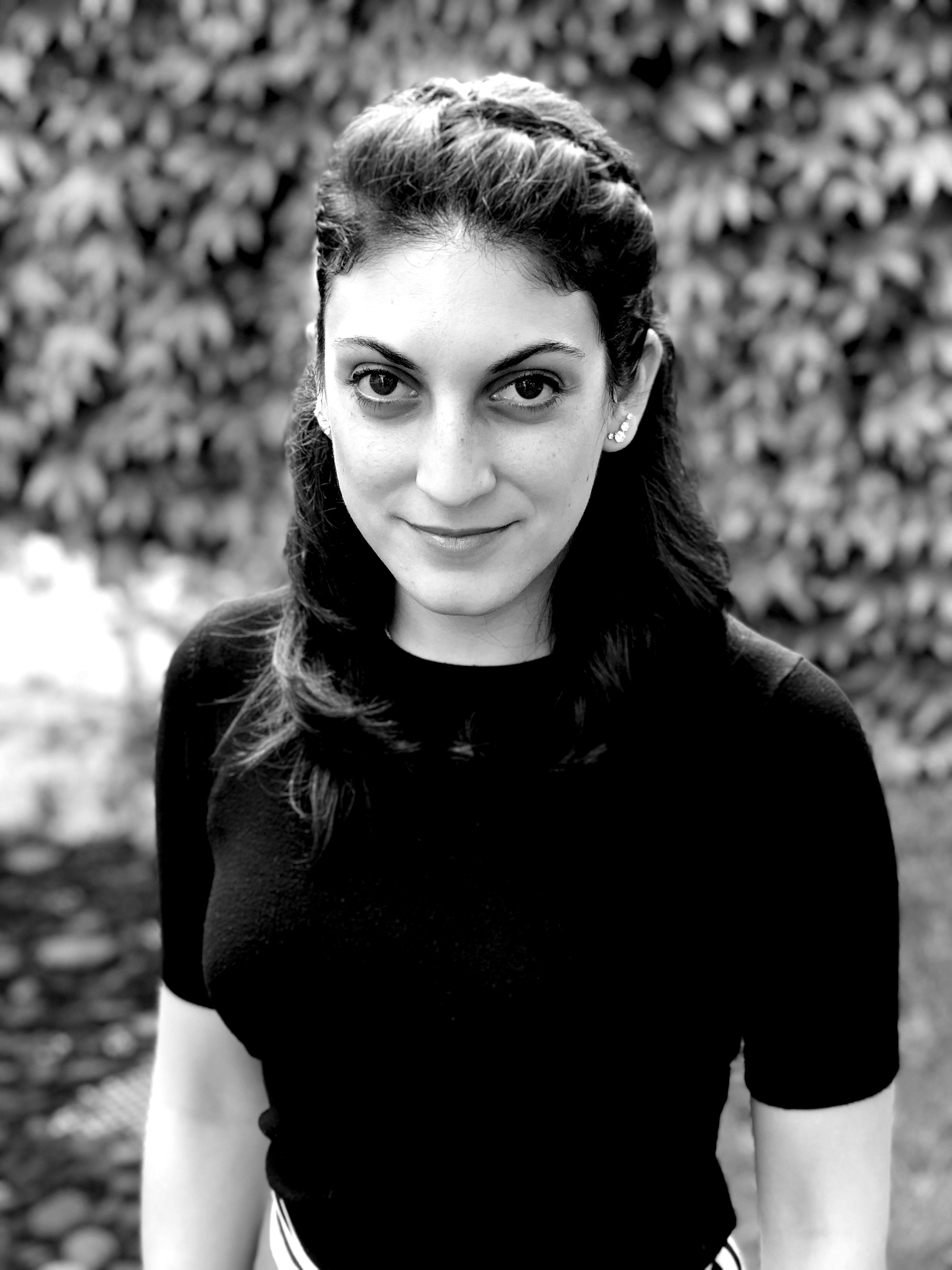
Danika Cooper is an Assistant Professor of Landscape Architecture and Environmental Planning at the University of California, Berkeley, where the core of her research centers on the geopolitics of scarcity, alternative water ontologies, and designs for resiliency in the world’s arid regions. Her work incorporates historiographical research methods, data visualizations, and theories of urban infrastructure to evaluate and design for environmental and social justice. Specifically, Cooper is focused on emphasizing alternatives to the prevailing nineteenth-century conceptions that the aridlands should be overturned through technocratic solutions and neoliberal politics. Her work has been published and exhibited around the world, and she has practiced in both the United States and India.

